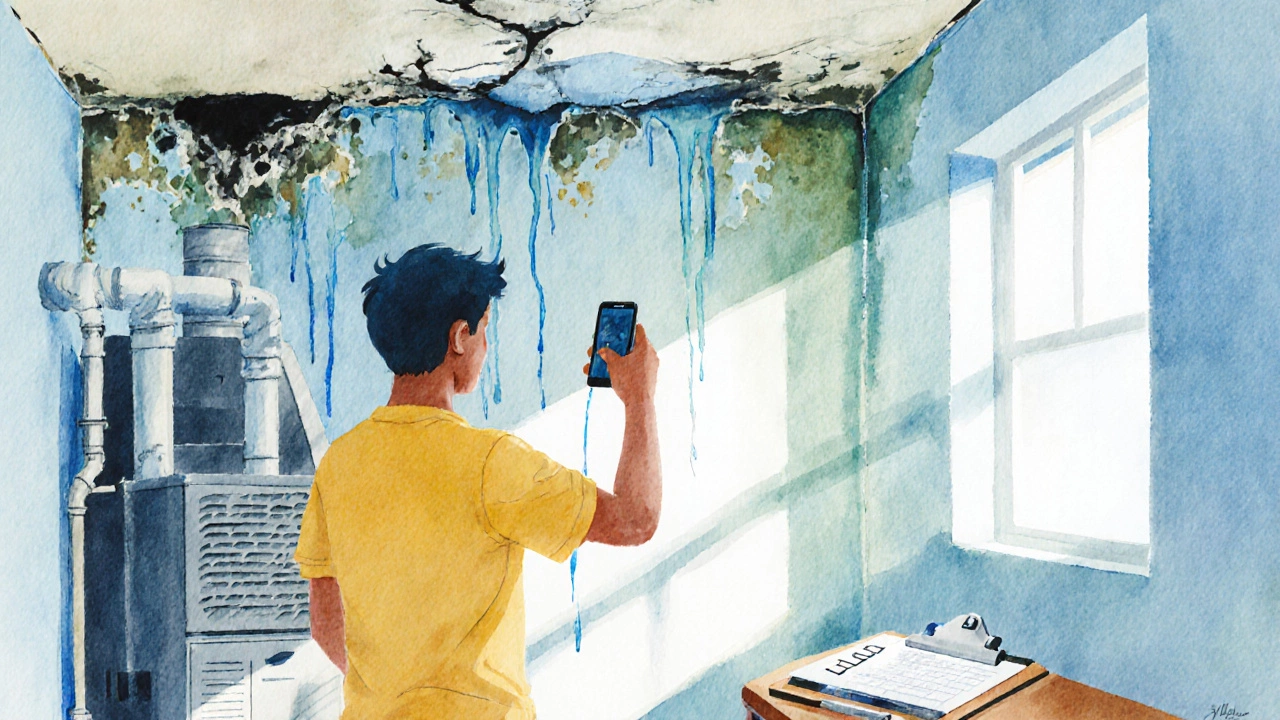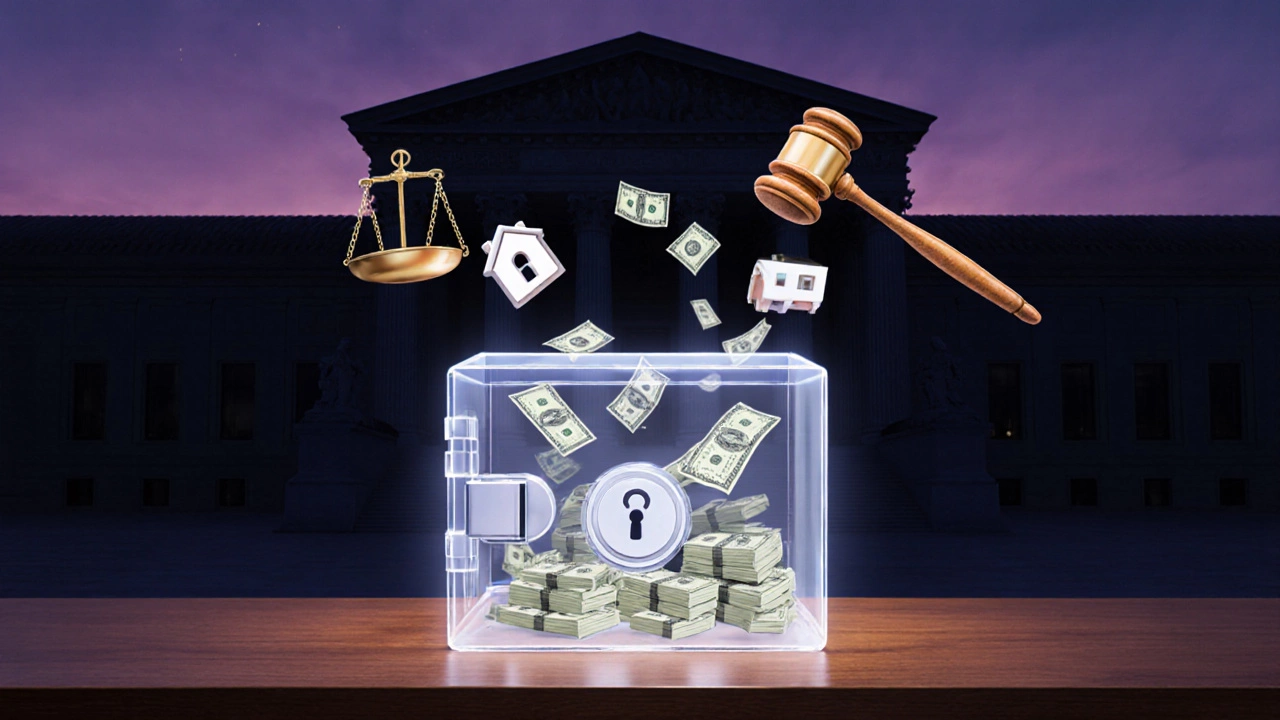Virginia Rent Withholding: Legal Reasons to Hold Back Rent

Oct, 3 2025
Virginia Rent Withholding Calculator
Calculation Result
Before withholding rent: You must follow the legal process:
- Identify a valid legal ground under Virginia law
- Document the issue with photos/videos
- Send a written notice to your landlord
- Keep withheld rent in a separate account
- Only withhold the portion reflecting actual loss of use
Remember: Over-withholding may lead to eviction. Always consult with a legal aid organization or attorney if unsure.
Quick Takeaways
- Virginia law lets tenants withhold rent for serious habitability issues, unrepaired essential services, or illegal entry.
- You must give a written notice stating the problem and give the landlord a reasonable time to fix it.
- Only keep the amount equal to the loss of use; over‑withholding can lead to eviction.
- Document everything - photos, copies of notices, and communication logs.
- If the landlord still ignores you, you can file a complaint with the Virginia Department of Housing or go to small claims court.
Rent withholding in Virginia is a tenant's right to stop paying rent when the landlord fails to meet essential legal duties. This right stems from the Virginia Residential Landlord and Tenant Act (VRLTA), which sets the baseline for safe, livable housing. Below, we break down the exact reasons you can legally hold back rent, how to do it correctly, and what pitfalls to avoid.
Legal Grounds to Withhold Rent
Virginia courts have identified several specific situations where a tenant can pause rent payments without breaching the lease. Each reason ties back to a core principle of the VRLTA - the landlord must provide a premises that is "fit for human habitation" and maintain essential services.
- Failure to repair a health‑code violation - Leaks, mold, or pest infestations that make the unit unsafe.
- Loss of essential utilities - No heat, hot water, electricity, or water after the landlord’s written notice period has expired.
- Illegal entry or severe privacy breach - Repeated landlord intrusion without proper notice.
- Constructive eviction - Conditions so bad that you’re forced to leave, even if the lease isn’t officially terminated.
- Landlord’s refusal to address a court‑ordered repair - If a judge orders a fix and the landlord ignores it.
These reasons all share a common thread: the landlord has breached a duty that the lease agreement or state law explicitly guarantees.
Step‑by‑Step Process for Withholding Rent
- Identify the problem. Verify that the issue falls under one of the legal grounds above. For example, a broken furnace in winter qualifies as loss of essential services.
- Document the defect. Take clear photos, video, or get a professional inspection report. This evidence will be crucial if the dispute reaches court.
- Send a written notice. Use certified mail or a hand‑delivered letter with a return receipt. The notice should:
- Describe the problem in plain language.
- Reference the specific clause of the VRLTA you’re invoking.
- Give a reasonable deadline - usually 7days for health‑code violations, 14days for less urgent repairs.
- State that you will withhold rent equal to the loss of use if the issue isn’t fixed.
- Hold the rent. Deposit the withheld amount in a separate, interest‑bearing account. Do NOT just keep cash at home; the court will want to see a clear audit trail.
- Follow up. If the landlord repairs the issue, resume full rent payments. If they ignore the notice, you can file a claim in small claims court (jurisdiction up to $5,000) or contact the Virginia Department of Housing and Community Development for an official inspection.

When Withholding Rent Can Backfire
Even if you have a valid reason, mishandling the process can expose you to eviction or a money judgment. Common mistakes include:
- Withholding more rent than the loss of use. Courts allow you to deduct only the portion that reflects the diminished benefit, not the entire monthly rent.
- Skipping the written notice. Verbal complaints aren’t enough; the law requires a written demand.
- Ignoring a landlord’s offer to fix the problem temporarily. If the repair is reasonable and restores habitability, continuing to withhold rent could be seen as bad‑faith.
- Failing to keep the withheld rent in a separate account. Mixing funds can be interpreted as abandoning the rent obligation.
If the landlord files an eviction for non‑payment, you can raise an affirmative defense by filing the same written notice you sent and attaching your evidence. The court will then decide whether your withholding was justified.
Checklist Before You Hold Back Rent
| Item | Why It Matters | How to Verify |
|---|---|---|
| Identify legal ground | Ensures you’re covered by VRLTA | Cross‑check issue against listed reasons |
| Document defect | Creates evidence for court | Photos, videos, inspection reports |
| Written notice | Fulfills statutory requirement | Certified mail, return receipt |
| Separate escrow account | Shows good‑faith handling of rent | Open a dedicated savings account |
| Follow‑up plan | Prepares you for next legal step | Know when to file small claims or call HD |
Frequently Asked Questions
Can I withhold rent for a minor cosmetic issue?
No. The law requires a substantial breach that affects health, safety, or essential services. Cosmetic problems like outdated paint won’t qualify.
What if the landlord fixes the problem after I’ve already withheld rent?
Resume full rent payments immediately. You can request a refund of the withheld amount if the repair restored full habitability before the notice deadline expired.
Do I need a lawyer to file a small‑claims case?
No, but having one review your paperwork helps. Small‑claims courts are designed for self‑representation. Bring all notices, photos, and a copy of the lease.
Can I withhold rent if the landlord is suing me for something else?
Only if the separate issue also breaches the landlord’s duty under the VRLTA. Otherwise, the two matters stay distinct, and you should address the lawsuit separately.
What role does the Virginia Department of Housing play?
The department can conduct an official inspection, issue a “notice of violation,” and sometimes compel the landlord to make repairs. Their findings strengthen your court case.
Real‑World Example
Sarah, a college student in Richmond, reported a cracked water pipe that flooded her bedroom. She mailed a certified notice to her landlord requesting repair within 7days, as required for a health‑code violation. The landlord ignored the notice. Sarah opened a separate savings account, deposited one month’s rent, and continued to live in the partially flooded unit. Two weeks later, she filed a small‑claims suit, presenting photos, the notice receipt, and the bank statement. The judge ordered the landlord to fix the pipe and return the withheld rent, plus $250 in damages.

Key Takeaways
Withholding rent in Virginia isn’t a free pass to stop paying when you’re unhappy; it’s a precise legal tool tied to habitability and safety. Follow the written‑notice requirement, keep the withheld amount proportional, and be ready to prove your case with solid documentation. When done right, you protect your rights and pressure the landlord to act.
Remember, the power to withhold rent is there to keep homes livable-not to settle disputes over minor annoyances. Use it responsibly, and you’ll stay on the right side of the law.